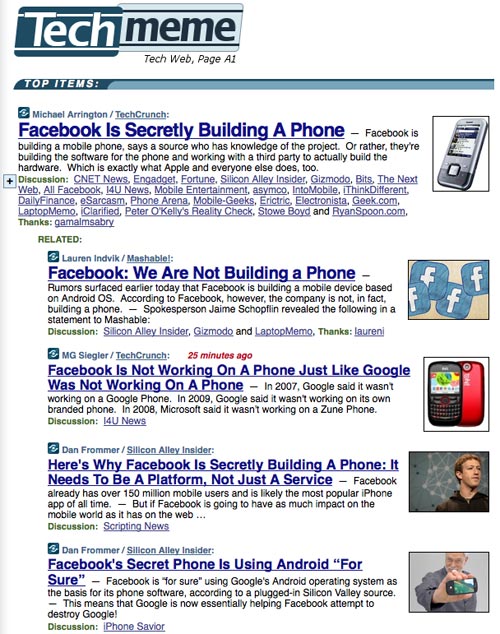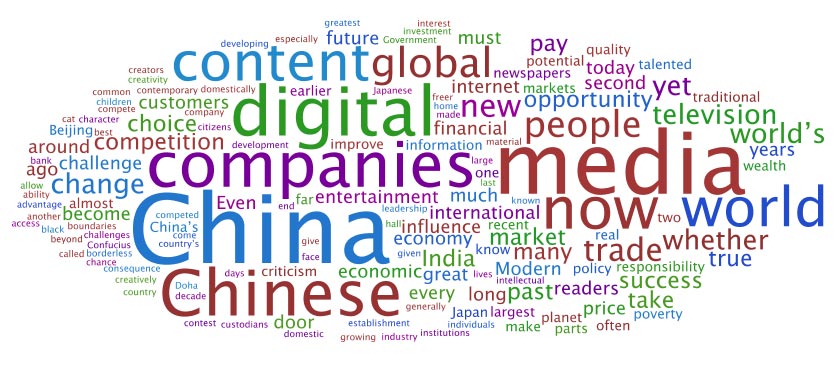A great spot from Wired’s Epicenter Blog: is Facebook developing a phone or not?

While aggregators filter information, what role should they have in verifying content? Or are such images illustrative of the current state of journalism?
A great spot from Wired’s Epicenter Blog: is Facebook developing a phone or not?

While aggregators filter information, what role should they have in verifying content? Or are such images illustrative of the current state of journalism?
In a speech to the Beijing World Media Summit last Friday, News Corp owner Rupert Murdoch attacked news aggregators and search engines. The ‘aggregators and plagiarists’ will soon have to pay the price for using publishers’ content for free, he said.
If publishers and news organisations don’t regain control they will pay ‘the ultimate price’ and it will be ‘the kleptomaniacs who triumph’, he told the industry event.
A Wordle of his keynote is understandably dominated by ‘China’, given the event’s location, with ‘digital’ overshadowing ‘newspapers’ in this instance:

Below you can read the speech in full:
Publishers must take back control of their content from search engines, aggregators and bloggers, which have become the ‘preferred customer destinations for breaking news’, the Associated Press’ (AP) Tom Curley has said at an industry summit in Beijing.
“We will no longer tolerate the disconnect between people who devote themselves – at great human and economic cost – to gathering news of public interest and those who profit from it without supporting it,” Curley said (though slightly strangely citing Wikipedia, YouTube and Facebook as key examples of threats).
Speaking separately at the event, News Corp owner Rupert Murdoch said ‘the aggregators and plagiarists’ would soon have to pay the price for using publishers’ content for free.
If publishers and news organisations don’t regain control they will pay ‘the ultimate price’ and it will be ‘the kleptomaniacs who triumph’, he added.
Earlier this week the Associated Press (AP) said it is considering whether it could sell news items to online clients for a short, exclusive period.
The agency is also developing a new system for tracking its content online and monitoring copyright infringements.
New copyright laws are needed in Europe to stop aggregators using content from news sites for free, Mathias Dopfner, chief executive of Axel Springer, tells the Financial Times.
“Asked if he wanted to see a position where Google was contributing to Axel Springer’s costs if it was going to use its content, he said: ‘Right, yes.’,” writes the FT.
Interesting suggestion from National Union of Journalists (NUJ) general secretary and Oxford Media Convention panellist, Jeremy Dear, that content aggregators should be subject to levies.
Dear said the union is opposed to state aid for local media and the relaxation of local media regulation rules, but would consider introducing a levy for those who ‘do not produce content, but live off the back of those who do’.
New media and digital technology is not a threat to journalism – the danger is people who treat news and information as just a commodity, he said. $5 minimum deposit casino canada
Online media is becoming dominated in the same ways as traditional media, he added.
Speaking to Journalism.co.uk, Dear said the idea is discussed in a report set for release next week, which focuses on public service broadcasting.